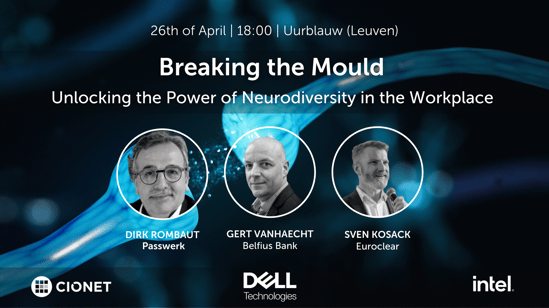

"Individuals who identify as neurodiverse are often highly creative, detail-oriented, and excel in problem-solving."
Discovering Bugs in AppsA diverse team approaches problems and solutions from different perspectives, particularly those within the broad spectrum of neurodiversity. Excluding these individuals is not only socially unjust but also inexplicable given the increasing difficulty in recruiting fresh talent. Fortunately, some companies are gradually realising this. Organisations like Passwerk are pushing for this evolution.
"Passwerk ensures that people on the autism spectrum have opportunities to develop their skills in the job market."
For several years, Belfius, for example, has been collaborating with Passwerk to integrate individuals who identify with autism. Initially, they assisted only in-app testing, which was a tedious and unpopular task for the company's IT department. Not only did the external consultants perform the task excellently, but their extreme attention to detail also helped uncover bugs that no one else could find. The bank now also utilises consultants for software development and configuration tasks within the IT Security Operations Center. The spectrum is so vast that the talent pool is diverse. For example, there are numerous opportunities in the field of cybersecurity, where over 300,000 job vacancies currently exist.
Hybrid Work and Technology
Now that companies have embraced hybrid work as a common practice, there is a tremendous opportunity to embrace (neuro)diversity in all its facets. A flexible work environment can make a real difference for these employees. With options for remote work, adjusted work schedules, and other adaptations that support a more inclusive work atmosphere.
For individuals who experience excessive stimuli in an office environment, technology allows them to work from home while still feeling like part of the team. Those who prefer to be in the office can utilise various tools (such as a good pair of headphones) to fully isolate themselves and focus on their work. Additionally, there is supportive technology available for individuals with specific needs, such as speech-to-text software that assists dyslexic employees in their daily work. 
No label, but an opportunity
Besides the right technology, you also need an open culture. A culture that embraces differences among employees and recognises and rewards everyone based on their own expertise. Focus as much as possible on roles rather than positions within your teams. From these roles, people can better utilise their unique competencies. For example, one person may be good at conceptualising ideas, while another may be better at presenting such concepts. With proper preparation and a prejudice-free environment, any company can integrate neurodiversity into its teams.
Companies with the right intentions make neurodiversity a goal. There's no need to wait. On the one hand, we can't afford to, given the urgent shortage of profiles in the job market.
"In the next ten years, we can expect neurodiversity to receive increasing attention in the business world. It all starts with a change in mentality and the realisation that neurodiversity is a unique opportunity for the entire business."
--
The above insights are derived from a roundtable organised by CIONET Belgium and Dell Technologies, in which Passwerk, along with various partners from diverse sectors (such as Belfius and Euroclear), participated. It is indeed crucial that we initiate the conversation together.
These Stories on CIONET Belgium
No Comments Yet
Let us know what you think